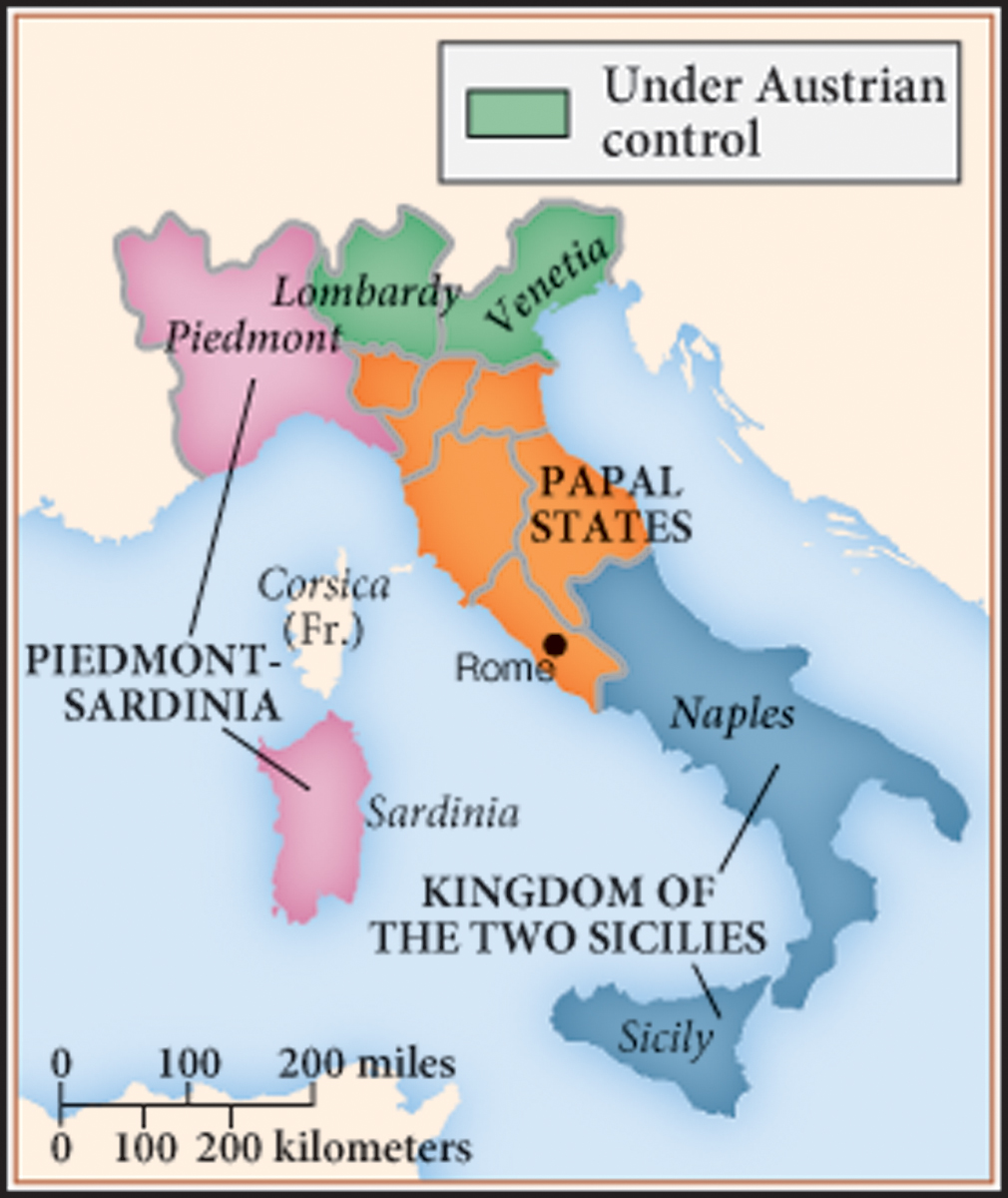Nationalist Revolution in Italy
Nationalist Revolution in Italy
In January 1848, a revolt broke out in Palermo, Sicily, against the Bourbon ruler. Then came the electrifying news of the February revolution in Paris. In Milan, a huge nationalist demonstration quickly degenerated into battles between Austrian forces and armed demonstrators. In Venice, an uprising drove out the Austrians. Peasants in the south occupied large landowners’ estates. Artisans and workers called for higher wages, restrictions on the use of machinery, and unemployment relief.

But class divisions and regional differences stood in the way of national unity. Property owners, businessmen, and professionals wanted liberal reforms and national unification under a conservative regime; intellectuals, workers, and artisans dreamed of democracy and social reforms. Some nationalists favored a loose federation; others wanted a monarchy under Charles Albert of Piedmont-Sardinia; still others urged rule by the pope; a few shared Giuseppe Mazzini’s vision of a republic with a strong central government. Many leaders of national unification spoke standard Italian only as a second language; most Italians spoke regional dialects.
As king of the most powerful Italian state, Charles Albert (r. 1831–1849) inevitably played a central role. After some hesitation caused by fears of French intervention, he led a military campaign against Austria. Although Austrian troops defeated Charles Albert in the north, democratic and nationalist forces prevailed at first in the south. In the fall, the Romans drove the pope from the city and declared Rome a republic. For the next few months, republican leaders, such as Giuseppe Mazzini and Giuseppe Garibaldi (1807–1882), congregated in Rome to organize the new republic. These efforts faltered when foreign powers intervened. The new president of France, Louis-Napoleon Bonaparte, sent an expeditionary force to secure the papal throne for Pius IX. Mazzini and Garibaldi fled. Revolution had been defeated in Italy, but the memory of the Roman Republic and the commitment to unification remained, and they would soon emerge again with new force.